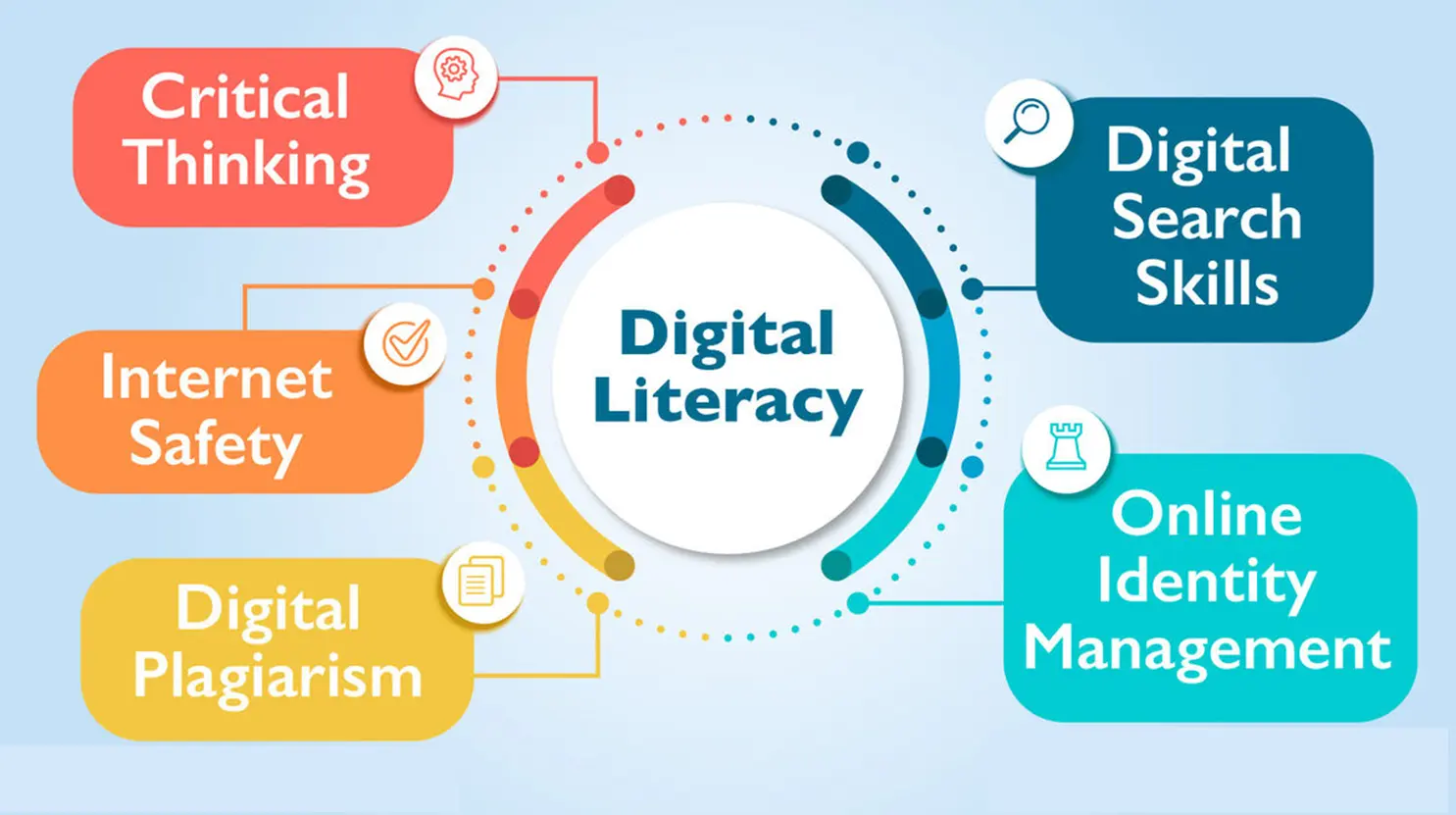There is no doubt that the world is progressing toward digitalization, with new technologies and skills uprising. These skills known as digital literacy are not only required for professionals navigating the working world but also for students as they learn in today’s education environment. With the evolution of more skills, most people have also integrated to fit into the digital world.
What is digital literacy?
Digital literacy is the ability of someone to effectively use digital technology. This may include understanding how to use hardware and software, navigating the internet, evaluating information found online, and comprehending the security and privacy issues related to digital technology use. People with good digital literacy are typically more adept at working with modern technology and utilizing it effectively in their daily lives. Developing digital literacy is very important in today’s technology-driven world to empower individuals to access, analyze, and use information in a meaningful way.
What is the importance of digital literacy?
Digital literacy is very important in today’s digital because it helps individuals to:
- Accessing Information: With good ideas in digital literacy, someone can search and evaluate information effectively on the internet.
- Participating in Digital Society: The ability to use digital technology also allows a person to engage in online communication, collaboration, and even sharing of information.
- Increase Job Opportunities: Many jobs today require digital knowledge, so having good digital literacy can open a chance to broader career opportunities.
- Privacy and Security: With an understanding of digital security and privacy problems, someone can protect themselves and their personal information when using technology.
- Innovation and Creativity: Digital literacy allows someone to use various digital tools and platforms to express creative ideas and innovate.
- Critical Thinking: Digital literacy helps individuals develop critical thinking knowledge and skills by evaluating the credibility and reliability of online sources and information.
- Lifelong Learning: It enables individuals to adapt to new technologies and continue learning throughout their lives.
- Communication Skills: This allows individuals the chance to communicate effectively through various digital platforms such as social media email, and messaging software.
- Empowerment: Digital literacy empowers youths and individuals to have more control over their digital lives, making them make informed decisions and participate actively in the digital world.
- Global Connectivity: Digital literacy has helped facilitate global connectivity by breaking down geographical barriers, and allowing individuals to connect with people from around the world, share certain ideas, and collaborate.
Conclusively digital literacy is very essential for individuals to thrive in the digital age, and also navigate the complexities of networks, and communicate effectively.
Challenges of Digital Literacy
Below are some challenges of digital literacy;
- Information Overload: With the vast amount of information available on the internet, it can be overwhelming to determine what is accurate and relevant.
- Fake News and Misinformation: It is difficult to distinguish between reliable sources and misinformation, which can lead to potential misunderstandings or false beliefs.
- Cybersecurity Risks: Understanding how to protect personal information online and recognizing potential threats like scams, phishing or malware is crucial for digital literacy.
- Digital Divide: Not everyone has access to technology or the internet which can lead to disparities in digital skills and opportunities for learning and communication.
- Updates and Tech Changes: Keeping up with rapidly evolving technology with updates and digital tools can be a challenge, requiring continuous learning and time.
- Privacy Concerns: Understanding how personal data is being collected, used, and shared online is very essential for protecting privacy in the digital age.
- Digital Etiquette: Knowing how to effectively interact appropriately online, like respecting others’ opinions and avoiding cyberbullying, is very essential for fostering positive digital communities.
- Critical Thinking: Developing an effective aability to evaluate online content critically, and analyze information is a key aspect of digital literacy.
Why is digital literacy important for studies?
Digital literacy is very important in today’s studies because;
- Access to Information: It allows students to access a good amount of information online, enabling them to conduct research and get resources for their academic work more efficiently.
- Research Skills: Digital literacy helps most students develop effective research skills, including evaluating online sources, and citing sources properly.
- Collaboration: Students can how ever collaborate with peers and instructors using digital tools, such as video conferencing, online platforms, etc to enhances teamwork and communication.
- Online Learning: With the rise of online education, digital literacy is essential for students to navigate virtual learning environments, engage with course materials, and participate in online discussions effectively.
- Presentation Skills: Digital literacy enables students to create videos, infographics, multimedia presentations, and other digital content to enhance their communication skills and present their creative ideas.
- Critical Thinking: Students can develop critical thinking abilities through digital literacy to analyze information, solve problems, and make decisions in an increasingly digital world.
- Career Readiness: Many professions nowadays require digital skills, and being digitally literate can enhance students’ employability and get them ready to integrate into the modern workforce.
From all the above points, we have seen that digital literacy is a very important factor in todays world and can get students ready with the necessary skills needed to suceed academically and help them engage effectively, collaborate with team mates or other.
You might also want to know more about Cyber security and how it is important


Leave a Reply